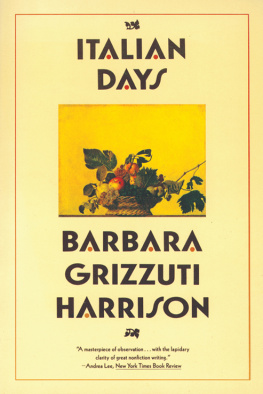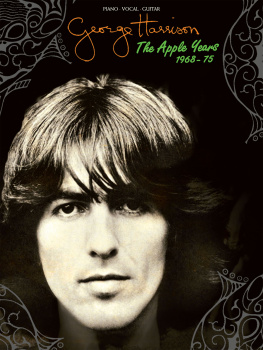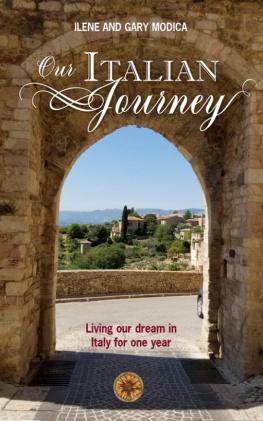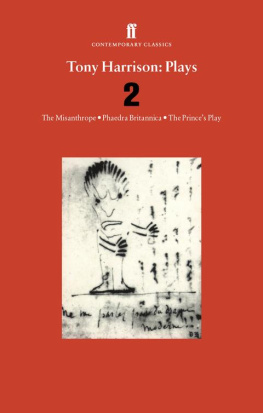
For my mother,
C ARMELA D I N ARDO G RIZZUTI ,
in memory and in expectation
ITALIAN DAYS

ALSO BY
Barbara Grizzuti Harrison
Unlearning the Lie: Sexism in School
Visions of Glory: A History and a Memory of Jehovah's Witnesses
Off Center
Foreign Bodies ( a novel )
ITALIAN
DAYS

Barbara Grizzuti Harrison

ATLANTIC MONTHLY PRESS
NEW YORK
Copyright 1989 by Barbara Grizzuti Harrison
All rights reserved. No part of this book may be reproduced in any form or by any electronic or mechanical means, or the facilitation thereof, including information storage and retrieval systems, without permission in writing from the publisher, except by a reviewer, who may quote brief passages in a review. Any members of educational institutions wishing to photocopy part or all of the work for classroom use, or publishers who would like to obtain permission to include the work in an anthology, should send their inquiries to Grove/Atlantic, Inc., 154 West 14th Street, New York, NY 10011.
Published simultaneously in Canada
Printed in the United States of America
Portions of this book have appeared, in slightly different form, in Church, European Travel and Life, Harper's, Lear's, Mademoiselle, and The New York Times, and in The Iowa Review and the 1989 edition of the O. Henry Prize Stories Collection.
Due to limitations of space, additional acknowledgments and permissions appear on page 479.
Library of Congress Cataloging-in-Publication Data
Harrison, Barbara Grizzuti.
Italian days / Barbara Grizzuti Harrison.
p. cm.
Bibliography: p.
ISBN-13: 978-0-87113-727-2
eISBN-13: 9780802190291
1. ItalyDescription and travel1981- 2. Harrison, Barbara
GrizzutiJourneysItaly. 3. Authors, American20th centuryJourneysItaly. I. Title.
DG430.2.H37 1989
914.5'04dc19 89-30115
CIP
Designed by Irving Perkins Associates
Atlantic Monthly Press
an imprint of Grove/Atlantic, Inc.
154 West 14th Street
New York, NY 10011
Distributed by Publishers Group West
www.groveatlantic.com
14 15 16 17 18 14 13 12 11 10 9 8
ACKNOWLEDGMENTS
I owe a great debt of gratitude to writers who have loved Italy, and written about Italy, before me: to Stendhal, of course, and Goethe and Henry James and Dickens and Montaigne and Hawthorne, and to Italo Calvino, but especially to the indefatigable travelers and scholars H. V. Morton and Georgina Masson. I owe at least as much to Georges Duby, and to Gaston Bachelard, traveler to the interior of the human heart and mind.
My friendsamong whom I count my son, Joshua Harrison, and my daughter and frequent traveling companion, Anna Harrisonhave been good to me during the long period of gestation a book requires; I especially wish to thank, for their several and varied and invaluable contributions, Bethany and Giancarlo Alhadeff, Joseph Caldwell, Ewart Cousins, Mimi and Nello D'Aponte, Mary DiNardo and Pasquale DiNardo, Franca Gavinelli, Alice Hagan, Richard Heitzman, Amerigo Iannacone, Armando Iannotti, Philip Murnion, Judita Natalucci, Nura Osman, Susan Pierres, and Mary Margaret Schroeder.
Ente Turismo, the Italian government tourist board, extended every courtesy to me, as did Angelo Manzi of the Cicerone Hotel in Rome and Benito Menucci of the Hotel Atlante in Rome. I thank them very much, and I thank Mario Claudio DiMaio of the Hotel President in Sorrento; Pino Caprio; and Dottore Nino Del Papa of the wonderful Grand Hotel Cocumella in Sant'Agnello, Sorrento. Mary Ann and Amedeo Pinto, who make the Hotel Pitti Palace in Florence such a delight, have all my gratitude.
John Herman has given me what every writer needsa fair measure of love and keen intelligence; I am immensely grateful to him.
Laura Polla Scanlon and Elizabeth Scanlon were all one could wish for as traveling companions; I thank them both.
Once again, I acknowledge my indebtedness to the MacDowell Colony and the Corporation of Yaddo for long and happy weeks of silence and beauty in which to write.
CONTENTS
I did not know, when I went to Italy, the nature of my undertaking, nor did I anticipate the meaning of my journey. I lived every day as I found it. I know nowwriting this book has taught me thisthat it was a journey of reconciliation. I understood this more more clearly as I traveled south, to the sun... and to my family. I discovered everything I feared and everything I loved. There was more to love than to fear; it was a lovely journey.
ITALIAN DAYS

Chapter I

MILAN:
THE ASTONISHED AND DISTURBED CITY
BERGAMO: COMMEDIA DELL'ARTE STRESA: HTEL DU LAC
1985. The Alps make you feel all starched and clean as you fly into Milanthey punctuate the long transatlantic sleep of a nighttime flight; groaning bodies stir and strengthen and come to morning life as the mountains exert a rosy magnetic pull that won't allow you not to pay them the compliment of being crisply awake.
But we don't land in Milan; we land in Genoa. Milan is smoky with fog. The pilot announces that those whose final destiny is Genoa may disembark, and several Americans do sonever minding that they will in any case have to return to Milan (ninety minutes by plane) to retrieve their luggage. It is a futile disembarkationwhat can have prepared them to believe that they and their luggage will ever be reunited? They have allowed the urge to touch land to overwhelm them. Everything about flying is absurd, anyway; all rules of logic are suspended; to make a decision affecting one's own welfare seems like an act of temerity; passengers who file out seem as much the playthings of inertia as those, grumbling, who remain inside.
The pilot announces that we may, depending on weather conditions, all have to disembark, in which case those of us bound for Milan will be bused into that city.
I like the idea of being bused to my destination; can anyone like airports? There ought to be some way of being gracefully eased into a foreign city; this business of gray ramp connecting to gray tube connecting to gray ramp, the knots and snarls of modern airports at either end, destroys the sense of travel (one doesn't travel, one is dumped), and travelthe means of getting to a placeused to figure just as pleasantly, certainly just as largely, in a traveler's plan as did his final destination. Travel used to be a matter of the means not only justifying the end but being indistinguishable from it; the slow and grand progression that took you places knit those places into the fabric of your being. Places weren't isolated spots on a map, they were part of an unfolding continuum. All travelers were pilgrims, once; jet planes changed that.
To traverse vast distances by ship and train permitted one to see the world as the Psalmist did and to put aside the notion of the world as global villagewhich notion, on the high seas, appears, paradoxically, to stem from a parochial urban sensibility. To change one's space or place is to change one's natureSpace, vast space, Bachelard wrote, is the friend of beingand air travel, the friend of time, is the enemy of being. When you've been obliged to sail through the Suez Canal you certainly know you've been somewhere; I'm glad I'm old enough to have enjoyed sea travel and train travel in the days when sea and train travel were both affordable and plausible. (I am the only person I know who has taken a train from New York City to Quezaltenango, Guatemala.) Now no place that any but the most intrepid explorer is likely to find his way to is more than a phone call away or a twenty-four-hour flight away from home, as a result of which all of literature and all of human relations have changed, all of life has changed... and I don't like it. To say that a sea lay between you and your beloved used to mean something, everything; now it means you are a beverage, a snack, a bad movie (and a travel agent) away from him, and absence has lost its poetry. When absence loses its poetry, presencebeing theredoes, too.
Next page
















